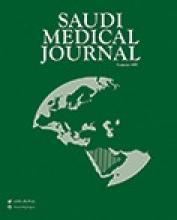To the Editor
I read with interest the distinguished study by Mikael and Al-Allawi on the factors affecting health-related quality of life (HRQoL) in Iraqi Kurd children and adolescents with thalassemia.1 On employing the Pediatric Quality of Life Inventory (PedsQL™) 4.0 Generic Core Scale, Mikael and Al-Allawi found that the mean HRQoL score of thalassemic patients was significantly lower than that of healthy subjects, with lowest scores in physical functioning.1 The lower mean HRQoL scores were noticed significantly in those with hepatitis C infection, those taking ≥6 blood transfusions/year, those on oral iron chelation, and those with illiterate parents.1 Statistically, HRQoL was negatively associated with the age, frequency of transfusions, and serum ferritin, but positively correlated with the age at diagnosis and age at starting transfusion.1 I presume that these results ought to be cautiously interpreted. This is based on the presence of the following methodological limitation related to the HRQoL assessment tool employed in the study. It is obvious that PedsQL™, released in 2001, is a modular instrument for measuring HRQOL in children and adolescents ages 2 to 18 years. It was constructed to be applicable for healthy school and community populations as well as pediatric populations with a wide range of acute and chronic health disorders.2 Because PedsQL™ is not a disease-specific assessment tool, but a new disease-specific QoL questionnaire for thalassemic children and adults, the transfusion-dependent QoL questionnaire (TranQol), has been launched in 2014. It is a self-report tool used in children, adult, parents or proxy. It measures HRQoL by assessing different domains, namely physical health, emotional health, family functioning, and school or career functioning with a score ranging from 0-100. High scores denote better HRQoL and a positive change from baseline denotes an improvement in the overall HRQol.3 Evaluation of TranQol in certain thalassemic populations documented it was valid, reliable, and responsive to change questionnaire that could be incorporated into clinical trials and researches.4,5 I wonder why Mikael and Al-Allawi 1 did not refer to TranQol instead of PedsQL™ in their study. I presume that if they employed TranQol after completing a translation agreement form to create a Kurdish version, more specific and precise results could be obtained.
Reply from the Author
I would first like to thank Prof. Al-Mendalawi for his kind interest and constructive comments on our manuscript.1 It is important to note first and foremost, that PedsQL™, since its introduction in 2001, has gained wide acceptance among researchers and clinicians worldwide as a reliable, reproducible, and validated tool to assess the HRQoL in pediatric populations, whether healthy or diseased. The bulk of the literature on HRQoL in thalassemia in the last 16 years used this generic tool, and that is the reason why we chose to translate and linguistically validate it for our study. Furthermore, since one of the aims of our study was to compare between the HRQoL in children with thalassemia and their healthy counterparts, a generic rather than disease-specific tool is the appropriate approach.
The Transfusion-Dependent Quality of Life tool (TranQoL) that our dear colleague referred to, was developed in 2013 as a disease specific tool designed to assess quality of life among transfusion dependent thalassemia major6 (it is worth noting that around a 3rd of our cases were actually thalassemia inter media, including non-transfusion dependent thalassemia). Although the creators of this tool have validated it,3 unfortunately it is not yet widely used. We agree with Prof. Mendalawi’s notion, that the use of disease specific HRQoL tool maybe more representative; however, this does not undermine our findings using a generic tool like PedsQL; especially that Klaassen et al (the creators of TranQoL) found a highly significant correlation between TranQL and PedsQL in the 55 thalassemia major patients they enrolled (p<0.001, r=0.77).3 However, we agree with Prof. Mendalawi, and with the suggestion of Klaassen et al, that a combination of both generic and disease specific QoL tools are warranted in future studies to have a better understanding of patients’ perspective of their disease.3
Nasir Al-Allawi
College of Medicine, University of Duhok Duhok, Iraq
- Copyright: © Saudi Medical Journal
This is an open-access article distributed under the terms of the Creative Commons Attribution-Noncommercial-Share Alike 3.0 Unported, which permits unrestricted use, distribution, and reproduction in any medium, provided the original work is properly cited.






